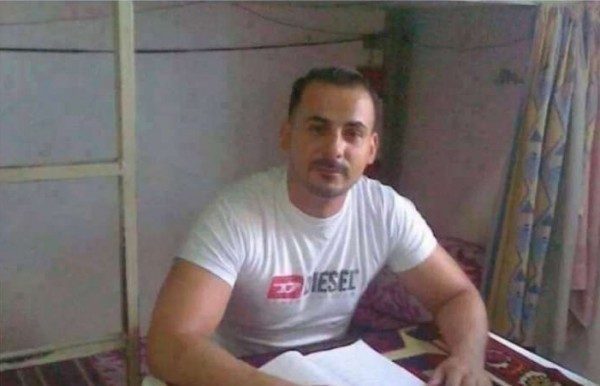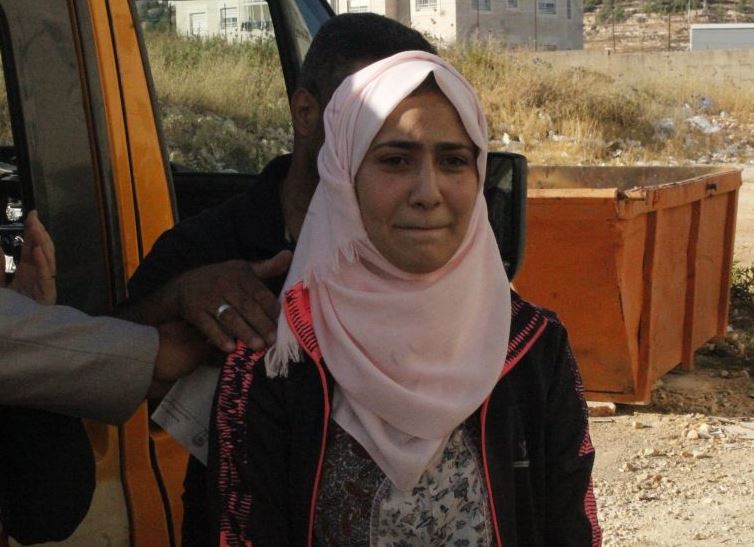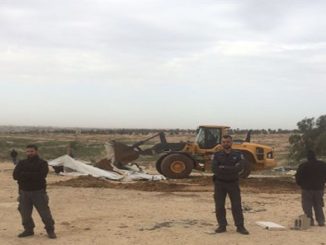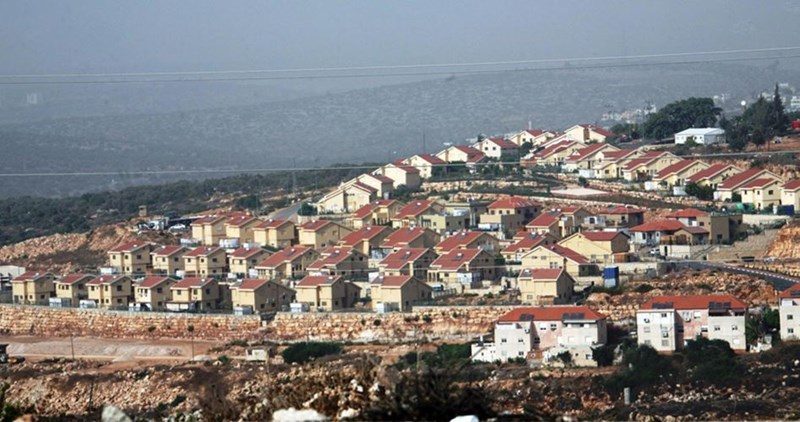
Palestinian prisoner Bilal Kayid has decided to escalate his hunger strike and refuse any medical treatments or tests until an Israeli court agreed to hear his case, prisoners rights group Addameer said on Monday, according to Palestinian local agencies.
Addameer lawyer Farah Bayadsa visited Kayid, who is currently held in the Barzilai Medical Center in Ashkelon under maximum security, on Sunday, and reported that Kayid wanted to be transferred back to prison so he could continue his hunger strike alongside other Palestinian prisoners.
Kayid has been on hunger strike for 48 days after Israeli authorities sentenced him to six months in administrative detention — internment without trial or charges — on the day he was due to be released after serving a 14-year sentence in Israeli custody.
Bayadsa said Kayid had decided to escalate his strike since an Israeli court turned down the appeal against his administrative detention. Beginning in August, Kayid has announced he would refuse all medical tests or treatment until a date is set for a court hearing.
For its part, The Popular Front for the Liberation of Palestine (PFLP) said in a statement that the Israeli Prison Service (IPS) has placed imprisoned PFLP Secretary-General Ahmad Saadat in solitary confinement.
The PFLP, Palestine’s most popular left-wing political faction, said that the Israeli decision came after Saadat started a hunger strike in solidarity with hunger-striking Palestinian prisoner and PFLP member Bilal Kayid, who entered his 48th day without food on Sunday.
“This practice by the Israel Prison Service won’t stop the battle for freedom, but rather bring about more escalation in Israeli prisons,” the PFLP said in its statement.
The statement added that Israel would have to “bear the consequences” of the decision to place Saadat in isolation, and would be held accountable for anything that could happen to Kayid, whose health has sharply deteriorated in recent days, as he has lost over 30 kilograms of weight, lost nearly 90 percent of his ability to speak, and has become hard of hearing.
Kayid has also asked to be transferred back to prison after denouncing his harsh treatment in the hospital. While detained at the Barzilai hospital, Kayid has had his right hand and left leg cuffed to the bed at all times, with three Israeli guards and a surveillance camera always present in his room, preventing any privacy, even during visits by his lawyer, which are limited to half an hour.
Qaraqe released a statement Monday morning saying that Saadat’s participation in the strikes represents “a new stage” in the mass protests, “that will escalate the confrontation with the Israeli prison services.”
In addition to a large-scale crackdown by the IPS, Qaraqe also anticipated that Saadat’s presence would “motivate all Palestinian prisoners to step up and join” in solidarity with Kayid and the Balboul brothers.
Highlighting the “life-threatening” and deteriorating health conditions of both Kayid and the Balboul brothers — one of whom, Mahmoud, was reportedly transferred to Israel’s Ramla hospital — Qaraqe urged Palestinians to organize more protests and solidarity actions in order to help the striking prisoners achieve their demands, such as the multiple sit-in strikes that have been set up across major cities in the occupied West Bank.
Qaraqe met with the families of Kayid and the Balbouls on Monday in Ramallah, along with Palestinian Prime Minister Rami Hamdallah and Deputy of Legislative Council Khalida Jarrar, also a leading member of the PFLP, who was released in June after serving 14 months in prison.
“We are making continues efforts with all international organizations, consulates and ambassadors to put Israel under pressure to release Palestinian prisoners from Israeli jails, starting with prisoners on hunger strike,” Hamdallah said.
He added that the Palestinian government and Palestinian President Mahmoud Abbas “will not rest” and there would be no Palestinian-Israeli peace agreement until all Palestinian political prisoners were released from Israeli prisons and Israel’s administrative detention policy was completely stopped.
Israel’s administrative detention policy is widely criticized among Palestinians, who say it has been used to detain family members of Palestinian political leaders, in an extension of several policies that rights groups have deemed “collective punishment” aimed at disrupting family life for Palestinians in the West Bank and East Jerusalem.
According to prisoners’ rights group Addameer, 7,000 Palestinians were being held by Israel as of May, 715 of whom were held in administrative detention.
Kayid also said that Knesset members belonging to the Joint List — which represents Palestinian citizens of Israel — were banned from visiting him. He added that he was being harassed both Israeli extremists visiting the hospital and his guards, whom he accused of taking pictures of him in his sleep and turning the air conditioner on high when he felt cold.
After more than a month and a half of hunger strike, Kayid’s health has seriously deteriorated. The 35-year-old prisoner has been suffering from severe headaches, heartburn, exhaustion, insomnia, and weight loss.
Doctors have only allowed him to drink one liter of water each day because of his condition, and Kayid has also complained of suffering physical pain due to being shackled to his bed.
After insisting, he has been allowed to walk in his room for 15 minutes each day, even though he has only been able to walk slowly because of his feelings of dizziness.
Addameer has called Kayid’s imprisonment a violation of human rights and demanded the instant release of Kayid, as well as an end to all punitive measures against prisoners standing in solidarity with Kayid.
Kayid a member of the Popular Front for the Liberation of Palestine (PFLP), is from the town of Asira al-Shamaliya in the northern occupied West Bank district of Nablus, and was originally detained in 2002 for alleged involvement in the Abu Ali Mustafa Brigades — the armed wing of the Popular Front for the Liberation of Palestine (PFLP).
The large-scale solidarity movement amongst prisoners has resulted in an equally massive crackdown on mostly PFLP prisoners by the IPS, which has conducted multiple raids, cell block closures, confiscations of personal property, and transfers of detainees in attempts to quell the strikes.
According to prisoners’ rights group Addameer, 7,000 Palestinians were being held by Israel as of May, 715 of whom were held in administrative detention.



